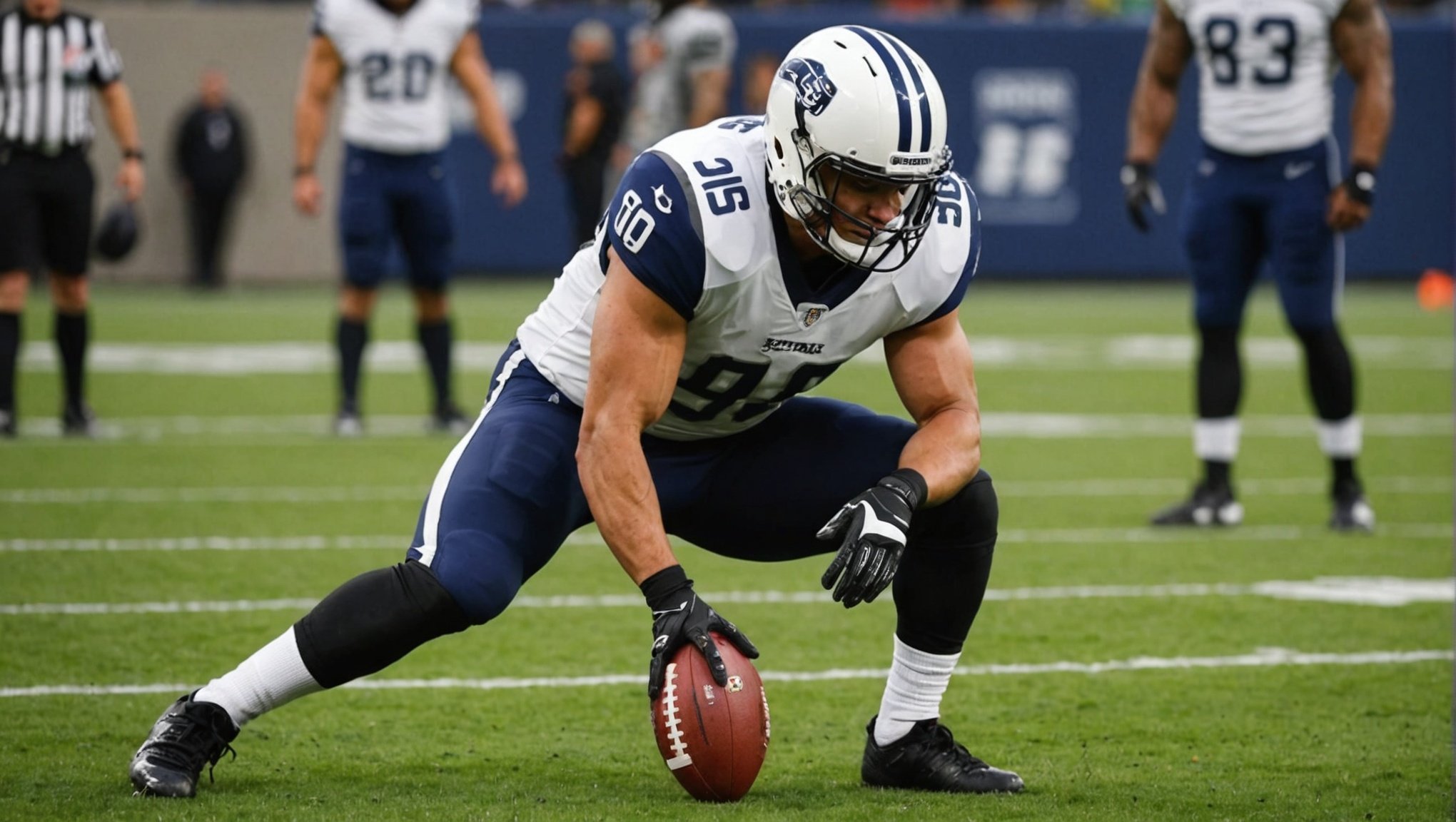Overview of Muscle Tears in Football Players
Understanding muscle tears is crucial for optimising a football player’s health and performance. These injuries frequently occur in the lower body, such as hamstrings, quadriceps, and calf muscles. Muscle tears vary in severity from mild strains to severe ruptures which significantly impact a player’s ability to perform.
The recovery timeline post-injury is crucial, often spanning weeks or months, depending on the severity. During this period, a well-balanced diet plays a vital role in facilitating effective injury recovery. Proteins, vitamins, and minerals are essential nutrients that aid tissue repair and strength rebuilding. Consuming lean meats, leafy greens, and whole grains can be beneficial.
In the same genre : Mastering Long-Range Passing in Football: Essential Training Techniques You Need to Know
Football players need to follow a comprehensive rehabilitation program that combines rest, physical therapy, and nutrition. Adequate protein intake helps in muscle repair while carbohydrates restore energy levels. Furthermore, hydration is critical to maintaining muscle elasticity and function.
Nutrition not only accelerates recovery but also prepares athletes for future performance. By understanding the dynamics of muscle tears and the importance of nutrition, players and coaches can make informed decisions to support player health. This holistic approach ensures athletes return to the field stronger and more resilient.
This might interest you : Boost Your Football Game: Top No-Gym Exercises to Enhance Explosive Power
Essential Nutrients for Recovery
Effective recovery relies on incorporating essential nutrients into your diet, particularly those promoting muscle repair and reducing inflammation. Central to muscle repair is protein, which serves as the foundational building block, facilitating the repair and growth of muscle tissues.
Role of Protein in Muscle Repair
Protein’s role extends beyond growth as it aids in repairing microtears in muscle fibres post-exercise. Incorporating high-quality protein sources like lean meats, dairy, beans, and legumes can significantly bolster recovery efforts. These foods furnish the necessary amino acids, the sub-units of proteins, crucial for repair.
Importance of Omega-3 Fatty Acids
In addition to protein, omega-3 fatty acids, known for their anti-inflammatory properties, play a pivotal role in alleviating exercise-induced inflammation. Found in fatty fish such as salmon and mackerel, omega-3s help reduce oxidative stress, thus expediting recovery.
Micronutrients Supporting Recovery
Furthermore, essential vitamins and minerals are integral to the recovery process. Micronutrients like Vitamin D, calcium, and magnesium aid in muscle function and repair. Including a diverse range of fruits and vegetables in your diet ensures these micronutrients are adequately supplied, supporting overall recovery and wellbeing.
Recommended Foods for Healing
Exploring suitable superfoods for athletes is crucial in optimising recovery and performance. The right dietary sources can significantly enhance healing processes and support energy levels. Let’s dive into the types of recovery foods that can make a substantial difference.
Protein-Rich Foods
Protein plays a pivotal role in muscle development and repair. Athletes should consider including the following in their diet:
- Lean meats such as chicken and turkey, providing high-quality protein without excessive fats.
- Plant-based protein sources like quinoa, lentils, and beans offer excellent options for those on vegetarian or vegan diets.
- Dairy options like Greek yogurt and cottage cheese, which supply not only protein but also beneficial probiotics.
Anti-Inflammatory Foods
Reducing inflammation can hasten recovery times. Superfoods for athletes in this category include:
- Berries and leafy greens, packed with antioxidants to combat oxidative stress.
- Fatty fish, such as salmon and mackerel, rich in omega-3 fatty acids, effective in reducing inflammation.
- Nuts and seeds like almonds and flaxseeds, which provide anti-inflammatory properties and healthy fats.
Hydration and Electrolyte Sources
Proper hydration is vital for efficient muscle recovery. Athletes should focus on:
- Foods such as bananas and avocados, high in electrolytes like potassium and magnesium that maintain fluid balance.
- Recommended fluids include water, coconut water, and sports drinks formulated to replenish electrolytes efficiently.
Meal Planning for Recovery
When it comes to athlete nutrition, a well-structured meal plan is crucial for optimal recovery. The timing and composition of meals can significantly impact how well an athlete bounces back after training.
A sample recovery meal plan should include a balanced intake of macronutrients: carbohydrates, proteins, and fats. Carbohydrates are vital for replenishing glycogen stores depleted during workouts. Proteins aid in muscle repair and growth, while healthy fats support overall cell function.
Meal timing plays a critical role in recovery. Consuming a meal rich in carbs and proteins within 30-60 minutes post-exercise can maximise recovery benefits. This window is often referred to as the “anabolic window,” where the body is primed to absorb nutrients efficiently. In addition to post-workout meals, snacks throughout the day should maintain this macronutrient balance.
A practical example of a recovery meal might include grilled chicken with quinoa and steamed vegetables, providing a mix of proteins, healthy carbs, and essential vitamins. For a snack, Greek yogurt with a handful of berries and nuts offers a great combination of carbs and proteins.
Focusing on macronutrient balance and timing will empower athletes to improve their recovery process and performance sustainably.
Tips for Nutrition Timing and Hydration
Understanding how to optimise nutrition timing and hydration strategies can significantly enhance athletic performance. Knowing when to consume nutrients is crucial for maximising energy levels and recovery.
Optimal Timing for Nutrient Intake
For athletes, the timing of meals around workouts is key. It is recommended to consume a balanced meal with carbohydrates, proteins, and fats about 3-4 hours before training. This meal should be followed by a smaller snack rich in easily digestible carbohydrates about 30-60 minutes before exercise. Post-workout nutrition should focus on replenishing glycogen stores and repairing muscle tissue. Within 30-45 minutes after activity, it’s beneficial to consume a mix of carbohydrates and proteins.
Hydration Strategies
Effective hydration strategies involve fluid intake before, during, and after physical activities. Start by drinking 500-600 ml of water or a sports drink two hours prior to exercise. During games or workouts, aim to consume 200-300 ml every 20 minutes, adjusting for conditions like heat and humidity. Post-exercise, replenishing fluids lost through sweat is crucial; it’s often recommended to drink 1.5 times the fluid lost.
Role of Supplements
Supplements can be beneficial for recovery, especially when it’s challenging to meet nutrient needs through diet alone. Consider them when specific nutrient deficiencies are identified, or during intense training periods, with guidance from a nutrition expert.
Importance of Professional Guidance
When aiming to optimise athletic performance, consulting a sports nutritionist offers invaluable benefits. These professionals provide tailored nutrition plans, crucial for personalised recovery strategies. A sports nutritionist evaluates your unique dietary needs considering factors like sport type, intensity, and individual health aspects. This professional advice ensures that nutrition aligns precisely with your performance goals and recovery requirements.
The key advantage of engaging with a sports nutritionist lies in their ability to develop detailed, bespoke nutrition plans, compared to generic recommendations. With tailored nutrition, athletes receive guidance that evolves alongside changes in their training regimen or competition demands. This continuous assessment is pivotal in maintaining optimal energy levels and enhancing overall performance.
Sports nutritionists also focus on the regular adjustment of dietary strategies. As an athlete’s needs vary over time due to training cycles or periods of competition, it is essential that nutritional plans are adaptable. This proactive approach aids in optimising recovery times, reducing injury risks, and improving peak performance periods.
In summary, professional guidance through a sports nutritionist involves a comprehensive understanding and application of scientifically-backed dietary strategies, offering a significant edge for athletes committed to achieving their best. With their expertise, athletes can ensure that their nutrition evolves alongside their athletic growth.













